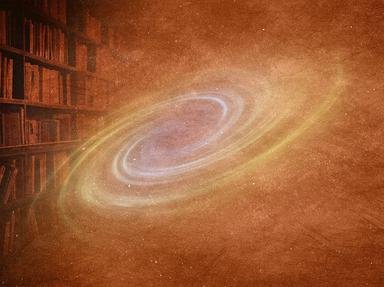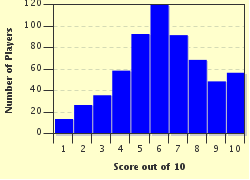Quiz Answer Key and Fun Facts
1. An ancient climate theory believed that areas with human settlement had a higher amount of what than uninhabited areas?
2. Even though Galen is considered to be one of the most important Greek medical writers, he was way off base with his theory regarding body fluids. Which of the following was NOT one of the fluids he believed helped to create the balance for good health?
3. Before the 1920s, astronomers believed that space was static. It wasn't expanding, or contracting. That changed with the discovery of which well-known astronomer?
4. Thales of Miletus is considered by many to be the first philosopher. He sought to find the one element in nature from which all things were derived. He concluded that the element of "primal stuff" was?
5. During the 16th century, and the great exploration of the New World, many geographers believed that which area, now a U.S. State, was an island?
6. During the Middle Ages, the field of medicine was not considered a science, even though the Greeks and Arabs had left behind many texts with ideas that were later proven to be correct. Who usually performed surgical procedures during this time?
7. A major source of controversy in the Renaissance was that of geocentricity. The Roman Catholic Church proclaimed the world was the centre of the universe. What scientist, also a Polish monk, debunked this theory?
8. The great Greek statesman, Pericles, died in 429 BC of a terrible plague that struck Athens during the Peloponnesian War. What did the Greeks believe was the cause of the plague?
9. Johan Joachim Becher first claimed that an element called "phlogiston" was contained within all materials that could what?
10. In the 17th century, James Ussher, Archbishop of Armagh, put forth a theory that Creation took place in 4004 BC on October 23 at 9:00 a.m. What discovery in 1858 in England helped disprove his theory?
Source: Author
George95
This quiz was reviewed by FunTrivia editor
WesleyCrusher before going online.
Any errors found in FunTrivia content are routinely corrected through our feedback system.


